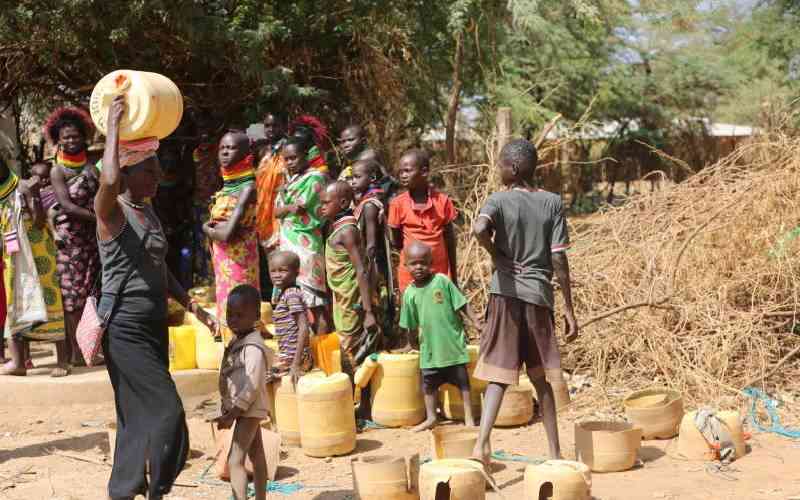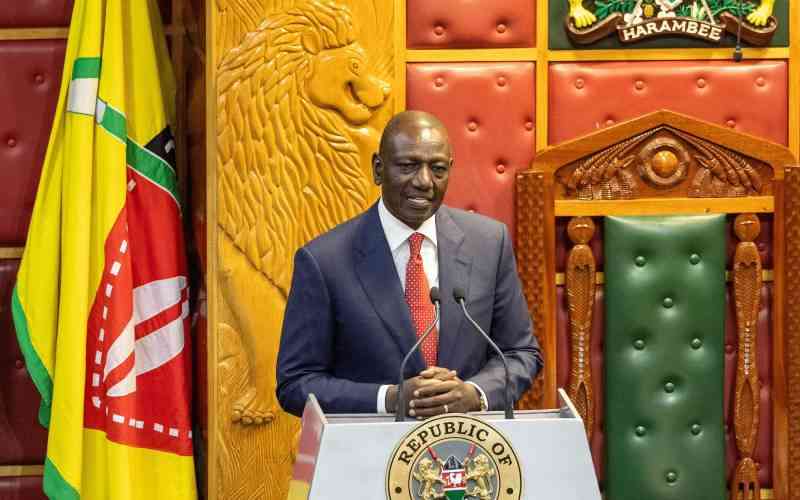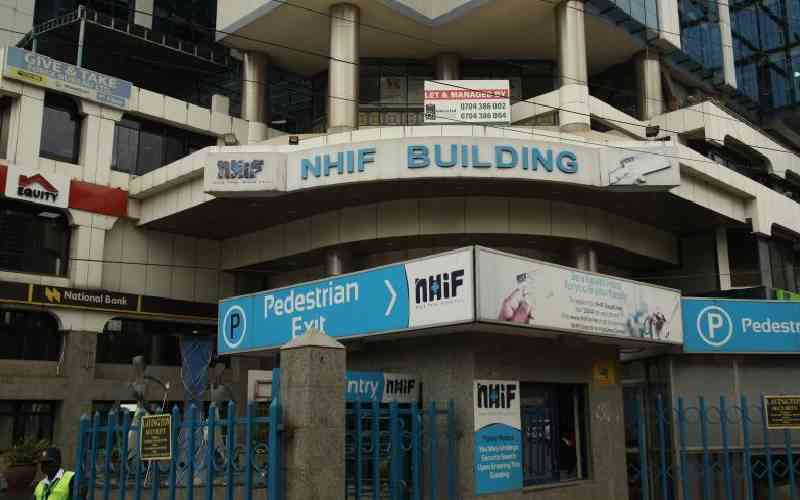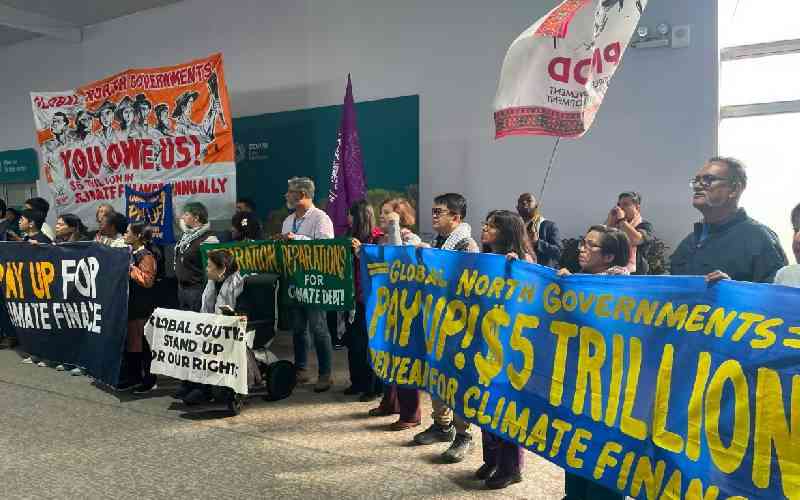
Fetching water for Ruth Amone, a mother of five, now only takes a few minutes compared to trekking a few kilometres to River Turkwel.
Amone from Naipa village, Turkana County, says she used to walk for four hours to and from River Turkwel to fetch water under extreme heat with her children. But now the water point is a few metres away, allowing her children to be in school.
Amone says the river posed danger to women, children and cattle due to frequent crocodile attacks which saw one child killed "we had to accompany children and our cattle to fetch or drink water. This would take almost the whole day," adds Amone, one among 7000 residents of Loima Sub-county benefiting from Naipa Water Supply Project constructed in 2021 by UNICEF which partnered with World Vision and Turkana County government.
Amone and other residents of Lobei/Kotaruk Ward for ages depended on River Turkwel, their only source of water after hand pumps broke down due to poor maintenance.
The Naipa Water Supply Project involves two 10 cubic metre storage tanks, one communal water point, one cattle trough and a 1.4 kilometre pipeline supplying water to Kopeto Primary School and Kopeto Dispensary.
- Misdiagnosis, climate change to blame for pathogens' resistance to drugs
- Scorching truth: How climate change aggravates brain diseases
- Africa pushes for climate justice at COP 29, seeks $1.3tr financing promise
- Climate crisis leave millions in distress - UN
Keep Reading
Solomon Ejore, the chair of the water project, says five villages including Oyakole, Aderoit, Kaimesekirion, Ulukuse and Naipa villages draw water from the borehole with "the farthest coming from villages 30 minutes away. Some fetch from the water point, others at the borehole where we have the cattle trough," says Ejore.
Waste water from cleaning the cattle trough has other uses as Iwelete Lonyaman, the cleaner, uses it to irrigate his farm near the borehole.
"I grow traditional vegetables like kunde and managu, maize, pumpkins and beans using the dirty water," says Lonyaman who gets steady supply of food during prolonged drought and other vagaries of climate change.
The water project is among 76 such projects spread across Turkana Central and Loima Sub-counties aimed at strengthening community resilience to climate change through improved Water Sanitation and Hygiene Services (WASH).
Jackson Mutia, a WASH officer at UNICEF, notes that climate change is a direct threat to water sources in the region, with pastoral lifestyles affecting children as "when populations move in search of water, most children are unable to attend school and don't get access to healthcare services. This affects their ability to achieve life in its fullness."
Mutia adds that improved sanitation eliminates water contaminants thus preventing waterborne diseases that affect children besides ensuring teenage girls enjoy their dignity by practicing menstrual hygiene.
UNICEF with funding from the Korean International Cooperation Agency, KOICA, has drilled 76 boreholes with 67 of them delivering safe water to 136,000 people in the two sub counties.
"UNICEF is focusing on improving access to safe water and reducing open defecation status, which currently stands at 68 percent. This means seven out of 10 people go to the bush, thus contaminating the water systems," says Mutia.
Once completed, the water project is owned by the community with a water committee overseeing operations and maintenance.
Evans Musyoki, a WASH and Construction officer at World Vision says water committee is elected by the community "whose members are trained on financial management, operations and maintenance, conflict resolution, treatment and proper ways of handling water."
Francis Kidake, a Nutrition Specialist at UNICEF Lodwar Zonal Office in Turkana, says the county has been experiencing severe drought for four seasons thus affecting food production.
Scarcity of food impacts on children under five, pregnant and lactating mothers, with many cases of severe malnutrition reported in the last one year.
"About 70, 000 children under five are in need of treatment for acute malnutrition. This means that they are not able to grow to their full potential, and those who are severely malnutritioned are at risk of dying. Currently, many families cannot afford a meal a day," he explains
The situation was worsened by Covid-19 pandemic, locust invasion and the increase in food prices- but water is the most important component in achieving proper nutrition and mitigating effects of climate change.
"Without addressing the drivers of climate change, the country is likely to experience drought for a longer period," warns Kidake adding that there will be more than the 1.4 million Kenyans currently in need relief food, in the coming season if the situation is not addressed.
Tito Ochieng, the Turkana County Director for Water Services says the county has 1,600 boreholes supplying water to residents, increasing water to access up to 60 percent.
But the biggest challenges besides frequent droughts, is managing the water systems with close to 40 percent of the boreholes broken down while others have saline water.
"For the past four years, Turkana has been hit with frequent droughts followed by floods like that experienced in 2019. The rains fall just before drought mitigations slowing down climate mitigation measures," says Ochieng adding that several water projects provide water for Lodwar Town, including the Napuu Aquifer with seven boreholes producing between 30-100 cubic metres of water per hour.
But climate changes saw nine boreholes along River Turkwel being swept by floods in 2019, but use of affordable and sustainable solar-powered water supply system which is easy to maintain and compatible with fresh and plentiful groundwater, is one way the challenge is being addressed in drought stricken counties.
But in the long run, policy regulations and guidelines on climate change besides county governments investing more in climate resilience and adaptation, including use of clean energy, will be more useful.
 The Standard Group Plc is a multi-media organization with investments in media platforms spanning newspaper print
operations, television, radio broadcasting, digital and online services. The Standard Group is recognized as a
leading multi-media house in Kenya with a key influence in matters of national and international interest.
The Standard Group Plc is a multi-media organization with investments in media platforms spanning newspaper print
operations, television, radio broadcasting, digital and online services. The Standard Group is recognized as a
leading multi-media house in Kenya with a key influence in matters of national and international interest.











